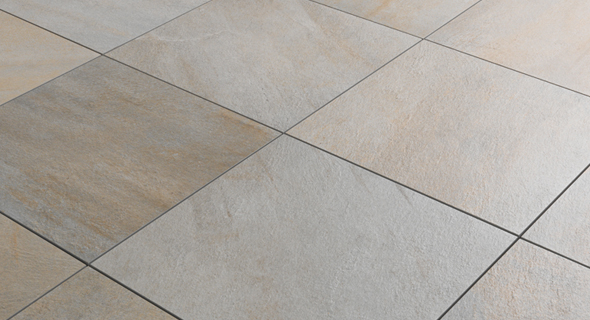Flooring tiles make for a beautiful addition to any interior or exterior design, providing colour and character to wherever you decide to lay them.
However, a simple chip in a tile is a sure-fire way to ruin that impressive aesthetic, leaving an unsightly and noticeable blemish like a pimple on prom night.
Luckily, with porcelain tiles, such an occurrence needn’t be a worry – and here’s why…

Chip Off the Old Block
When it comes to chipped tiles, the difference between ceramic and porcelain can be night and day.
Porcelain is essentially the Mike Tyson of the tiling world – tough and strong yet also visually impressive on the surface and capable of taking on all comers.
Meanwhile, ceramic is the tile equivalent of Sylvester Stallone – looks the part on the surface but probably won’t be able to last when put to the test against real competition.
While both will fill the role perfectly, when push comes to shove, you’re going to want to enlist the aid of the real deal and not a lookalike playing the part to get the full, all-round benefits.
Ceramic vs Porcelain
Ceramic tiles typically comprise of a plain tile composition that is coated with a coloured glaze which provides the aesthetic design.
While this can work out cheaper, the tiles suffer in terms of practicality. Any chips incurred will naturally expose the plain body underneath, making it very obvious and tarnishing the design.
Worse still, ceramic tiles can chip very easily, which can be problematic when an inevitable dropped mug occurs. Luckily, no such problems occur with porcelain tiles…
Porcelain Power
So, going back to the original question, do porcelain tiles chip easily? Thankfully, the answer is a resounding “no”.
All of the porcelain tiles available at PrimaPorcelain go through the vitrification process that crucially uses a dye mixed in with the clay before being placed in the kiln.
This not only provides the tile with stronger resistance to a variety of demands, but the inclusion of the dye also gives each tile a consistent colour throughout the body.
The result is a sturdier tile that is capable of withstanding a reasonable impact without showing any ill effects.
Meanwhile, the through-body colouration means that, in the unlikely event that your tile was to incur a chip, the results would be far less noticeable.
For more information on vitrified porcelain tiles and their advantages over ceramic tiles, why not drop us a line today? Call now on 029 2080 3756 to get in touch or click the button below to order a FREE sample and see for yourself. Our samples come in both small and large formats, so you can really get a feel for your chosen tiles.
Get a FREE Sample
Once you're happy with your chosen tiles, you can use our paving calculator to work out how many tiles you need. Simply add them to your basket and checkout through our website. It couldn't be easier!